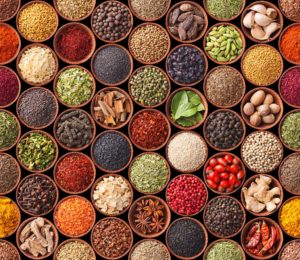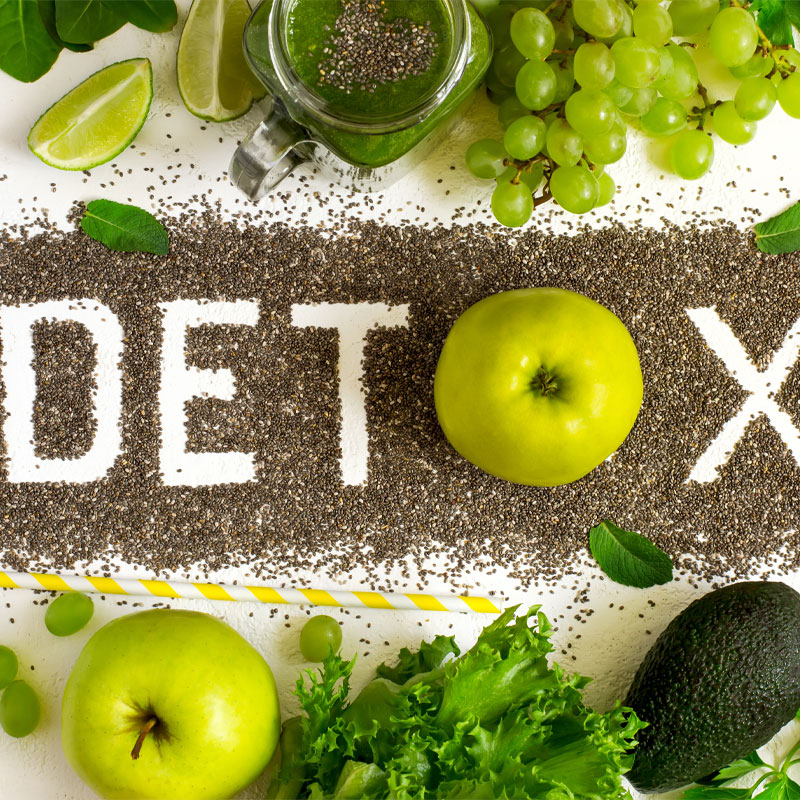
According to the American College of Gastroenterology, approximately 15 percent of American adults suffer from the symptoms of irritable bowel syndrome. Unfortunately, only 5 to 7 percent of American adults have been diagnosed with IBS. Irritable bowel syndrome causes a plethora of symptoms, including abdominal cramping, diarrhea, constipation, food intolerance, bloating, gas, sleep issues, fatigue, depression, and anxiety. The are many foods that can trigger digestive problems. Removing these triggers from your diet can dramatically improve your digestive health. Fermentable carbs are one of the most common trigger foods. A low FODMAP diet can help improve your digestive health and relieve the symptoms of irritable bowel syndrome.
What is a FODMAP Diet?

FODMAP is an abbreviation for fermentable oligosaccharides, disaccharides, monosaccharides, and polyols. This group of short chain carbohydrates is known to cause stomach pain, gas, bloating, and other digestive woes. Many FODMAP foods also serve as food for potential bad bacteria, thus feeding a vicious cycle of digestive imbalances.
Most FODMAPs are recognized as dietary fiber and are completely resistant to digestion. They pass through the digestive tract completely unchanged. FODMAPs are typically not an issue unless too much of these foods are eaten.
FODMAP foods draw water into the digestive tract, which can cause you to become bloated. If too many FODMAP foods are eaten, they can remain in the digestive tract for too long and begin to ferment and cause uncomfortable symptoms.
Foods To Avoid on a Low FODMAP Diet
There are a number of foods that are high in FODMAPs that you should limit or avoid if you are experiencing the symptoms of irritable bowel syndrome-

- Fruits – Apples, apricots, blackberries, cherries, dates, pears, watermelon, peaches, mangoes, figs, and canned fruit
- Sweetener – Fructose, high fructose corn syrup, agave nectar, mannitol, sorbitol, xylitol, honey, and maltitol
- Dairy Products – Milk (cow, sheep, and goat), ice cream, fresh cheese (ricotta, cottage, etc.), sour cream, whey protein supplements, and yogurt
- Legumes – Baked beans, beans, red kidney beans, chickpeas, soybeans, and lentils
- Wheat – Biscuits, cereal, pasta, bread, waffles, crackers, pancakes, and tortillas
- Grains – Rye and Barley
- Beverages – Fortified wines, milk, soy milk, fruit juices, soft drinks, and beer.
Foods To Eat on a Low FODMAP Diet
The goal of a low FODMAP diet is to reduce the number of offending foods that you eat. It can be particularly difficult to totally eliminate FODMAPs from your diet. However, minimizing FODMAPs can help relieve your IBS symptoms. Include the following low FODMAPs in your diet:
- Beverages – Coffee, tea, water
- Dairy Products – Lactose free dairy products, hard and aged cheeses
- Fats and Oils
- Fruits – Blueberries, bananas, grapefruit, grapes, kiwi, oranges, strawberries, raspberries, passion fruit, lemons, limes, and melons (other than watermelon)
- Grains – Corn, tapioca, oats, quinoa, and rice
- Herbs and Spices
- Nuts and Seeds – Almonds, peanuts, sesame seeds, cashews, macadamia nuts, and pine nuts can be enjoyed; however, pistachios should be avoided.
- Proteins – Most eggs, fish, and meats are well tolerated as long as they do not have added FODMAP ingredients.
- Sweeteners – Molasses, maple syrup, and stevia
- Vegetables – Bell peppers, bok choy, celery, carrots, eggplant, cucumber, green beans, lettuce, kale, olives, potatoes, radish, parsnip, spinach, squash, turnips, yams, sweet potato, tomato, and zucchini

Benefits of a Low FODMAP Diet
When you consume FODMAP foods, the food travels to the intestinal tract and becomes fermented and used as fuel for the bacteria in the intestinal tract. As the bacteria feed on FODMAPs, hydrogen is produced, which causes abdominal cramping, constipation, bloating, gas, and stomach pain. The good and bad bacteria also become out of balance causing dysbiosis. A low FODMAP diet reduces the amount of gas and bloating experienced by halting the excess hydrogen produced and over feeding the bad bacteria. Many experience less constipation, diarrhea, and stomach pain while on this diet plan.
Irritable bowel syndrome is a stressful condition. Individuals often experience depression and anxiety. Following a low FODMAP diet can decrease the amount of physical and mental stress. In fact, three out of four individuals who follow a low FODMAP diet will begin to experience relief immediately.
How to Follow a Low FODMAP Diet
If you are experiencing the symptoms of irritable bowel syndrome, your holistic practitioner may recommend a low FODMAP diet which is a three-step process. Let’s take a look at each step and how it can help relieve your symptoms.
- Restriction – During the first stage of your diet, you will need to stop eating all high FODMAP foods for six to eight weeks and see if your IBS symptoms improve. During this time, your body will begin healing from the inside out. Some individuals begin noticing a positive change within a couple of weeks, while it can take up to eight weeks for others. Once your symptoms have been relieved, you can continue to the next step.
- Reintroduction – During the second stage, you will begin reintroducing foods one food per week. If your symptoms return, make note of the food item and remove it from your diet. Once you are not experiencing any symptoms, you can begin reintroducing other foods. Oftentimes, individuals find that they are only sensitive to a couple of FODMAPs rather than all of them. Keeping a food journal throughout the reintroduction period of your diet can help you determine the foods that you should avoid totally and the foods that you may be able to tolerate. It is important to note that a low FODMAPs diet is not supposed to be long term, rather used as a tool to determine the specific foods causing gastrointestinal distress.
- Personalization – Once you determine the foods that trigger your IBS, you can create a diet that eliminates those foods and ensure that you are getting the foods and nutrients that your body needs. This type of diet is referred to as a modified low FODMAP diet. The items that did not cause any problems can be added back into your diet; however, you should still avoid eating these items too often or too much. Following a modified low FODMAP diet can ensure long term compliance and improved health.
Holistic Approach For Digestive Disorders
Dietary changes can be difficult; however, they can greatly improve your IBS symptoms. Our team of holistic practitioners specialize in treating digestive disorders and understand the importance of a healthy gastrointestinal system to your overall well-being. They will work with you and recommend appropriate lifestyle and dietary changes that you may need to improve your digestive health and minimize the symptoms of irritable bowel syndrome. You are not alone; we will be with you every step of the way.
























